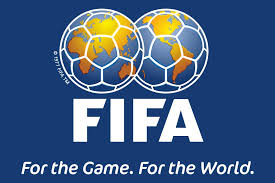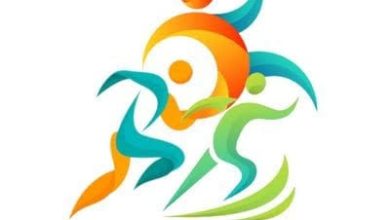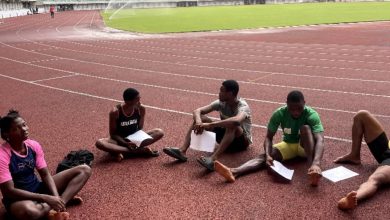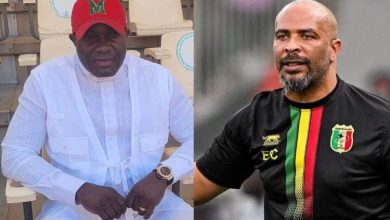FIFA Players’ Voice Panel takes up duties to tackle racism in football

- FIFA Panel consists of representatives from 14 Member Associations and six confederations, each passionately driven to end racism in football
- The panel’s mission will be to participate in the Global Stand Against Racism, monitor and advise on anti-racism strategies, participate in educational initiatives and provide input for reforms
- Members to advise on anti-racism initiatives and champion the No Racism campaign by sharing personal stories
The line-up of FIFA’s Players’ Voice Panel has today been revealed, with the 16-strong group comprising legends of the men’s and women’s games, each of whom is fully committed to bringing an end to racism in football.
The Players’ Voice Panel champions the Global Stand Against Racism by bringing lived experience and leadership to the fight against racism in football. The panel monitors and advises on anti-racism initiatives based on the Global Stand Against Racism, drives education at all levels of the game and serves as a think tank for new ideas.
It advocates for cultural change and the consistent implementation of anti-racism measures under the global stand initiative across the football ecosystem, with a view to ensuring a lasting and accountable impact both on and off the pitch.
Established under pillar 5 of FIFA’s Global Stand Against Racism – which was unanimously adopted by the 211 FIFA Member Associations at the 74th FIFA Congress in Bangkok, Thailand, on 17 May last year – the Players’ Voice Panel line-up is as follows: honorary captain George Weah (Liberia), Emmanuel Adebayor (Togo), Mercy Akide (Nigeria), Iván Córdoba (Colombia), Didier Drogba (Côte d’Ivoire), Khalilou Fadiga (Senegal), Formiga (Brazil), Jessica Houara (France), Maia Jackman (New Zealand), Sun Jihai (China PR), Blaise Matuidi (France), Aya Miyama (Japan), Lotta Schelin (Sweden), Briana Scurry (United States), Mikaël Silvestre (France) and Juan Pablo Sorín (Argentina).
“The Players’ Voice Panel is the result of the unanimous vote by all 211 FIFA Member Associations who, through the Global Stand Against Racism, have made clear that the world is united against the scourge of racism in our game. As part of this, and for the first time ever, we will have players at the heart of the movement required to make this change a reality,” said FIFA President Gianni Infantino. “We are very fortunate to have such impassioned and prominent individuals, each of whom brings their own unique and individual experiences.
“These 16 panel members will support education at all levels of the game and promote new ideas for lasting change. They will further push for a shift in football culture, making sure measures to counter racism are not just talked about, but actioned, both on and off the pitch.”
“Let’s be clear on this: Racism and discrimination are not simply wrong – they are crimes. All incidents of racism, whether in stadiums or online, must be fully punished both by football and across society.
The panel members will play an instrumental role in educating various groups – including players participating in FIFA youth tournaments – about racism. Focusing on the effect that this abuse has on players, other individuals and football as a sport, the panel will offer support and practical advice on how to join them in taking a stand against what, in many countries, are criminal acts. The members will also work to raise awareness of the recently enhanced measures against racism, as approved by the FIFA Council, in their regions.
“Football brings unity and development. It also enhances humanity,” said honorary captain George Weah. “I will always exert all efforts, as I have done in the past and continue to do, to promote the sport because football is life. I am honoured to serve in this role.”
At the 74th FIFA Congress, FIFA and its Member Associations committed to the Global Stand Against Racism, a unified initiative grounded in five key pillars:
- Pillar 1: Rules and sanctions
- Pillar 2: Action on the field
- Pillar 3: Criminal charges
- Pillar 4: Education
- Pillar 5: Players’ voice
FIFA has since taken meaningful action across all five pillars, such as the recent updates to the FIFA Disciplinary Code (FDC) under pillar 1, which include increased fines and stronger accountability. The maximum fine has increased significantly, with the limit now set at CHF 5,000,000, and players and officials may now assist in identifying perpetrators of racist abuse.
The three-step anti-discrimination procedure has been included in article 15 of the FDC, with specific racism-countering measures, including the No Racism Gesture(pillar 2). To ensure consistent enforcement, all FIFA Member Associations (MAs) must now adapt their disciplinary provisions to bring them in line with the general principles of the FDC.
Meanwhile, FIFA’s Social Media Protection Service continues to facilitate the exchange of evidence packs following the conclusion of FIFA tournaments, to assist with any country-level prosecution, under pillar 3. Over 100 evidence packs have been distributed to date, while the service has analysed 33 million posts and comments across more than 15,000 social media accounts since its launch at the FIFA World Cup 2022™ in Qatar.
As part of the No Racism and No Discrimination campaigns, FIFA shares educational materials with players, coaches, officials and spectators, while the launch of an in-depth e-learning tool for MAs is planned for later this year. The work under pillar 4 also extends to children and young people, with No Discrimination campaign resources delivered through the FIFA Football for Schools Programme. The Players’ Voice Panel plays a central role in advancing the Global Stand Against Racism and will also play a particularly active role in developing and delivering educational initiatives.





